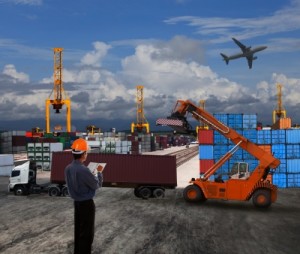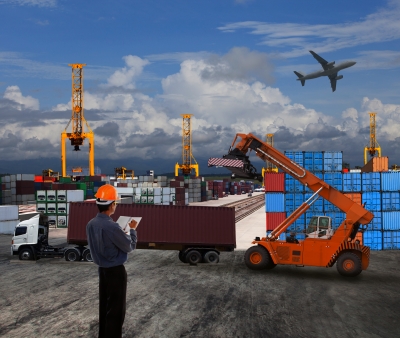 Though showing varying levels of optimism, stakeholders in the Philippine cargo transport industry see 2016 as a generally positive year, but one still presenting challenges amidst economic and political uncertainties and the anticipated crossover of some of 2015 issues to the new year.
Though showing varying levels of optimism, stakeholders in the Philippine cargo transport industry see 2016 as a generally positive year, but one still presenting challenges amidst economic and political uncertainties and the anticipated crossover of some of 2015 issues to the new year.
In emails to PortCalls, logistics and supply chain organizations shared their insights gained from experiences in 2015 as well as their forecasts and wish lists for 2016.
Supply Chain Management Association of the Philippines (SCMAP) secretary general Norman Adriano said the logistics sector expects 2016 to be better than 2015. Adriano said this optimism derives from the continued lowering of fuel prices and the expected rise in spending and service requirements to be generated by the upcoming national elections this year.
Confederation of Truckers Association of the Philippines (CTAP) vice president for external affairs Pepito Dino also sees a better 2016 for the trucking industry. He noted that as the country’s economy improves, imports and exports will also increase which, in turn, will induce higher demand for trucking services.
Cold Chain Association of the Philippines (CCAP) president Anthony Dizon said his industry continues to view the future with optimism, given that the parameters for growth seem to be in place for the short to medium term.
What foreign ocean carriers say
On the other hand, foreign shipping lines operating in the Philippines see 2016 as another challenging year of “imponderables,” according to Association of International Shipping Lines (AISL) general manager Atty. Maximino Cruz.
He noted that the Philippines has asserted herself as one of the most promising investment sites in Asia. With the economy seen to expand further, he added that more than ever, economic planners must adopt a proactive approach.
Cruz said challenges the government should confront and hurdle are those on infrastructure development. Projects should be far-reaching and be immediately set in motion based on a long-term development plan, he said.
The AISL executive urged the government to institute administrative and procedural reforms aimed at improving the ease of doing business in the country at the least cost. At the same time, government should come to terms with the importance of tapping private sector participation in order for reforms to be successfully undertaken.
Cruz pointed out that international shipping lines, for an instance, should be given a voice so they may optimize the enormous contributions of the maritime sector to the Philippine economy, not only in terms of revenue but in generating employment and in performing their vital role in the supply chain.
Same old issues
Meanwhile, other groups see the same issues and challenges they experienced in 2015 extending into this year.
SCMAP’s Adriano said traffic woes worsened by construction projects and repair works on infrastructure will still be this year’s major challenges. Another concern, he added, will be the government’s lack of focus due to the coming elections.
For CCAP’s Dizon, the cold chain industry will continue to be confronted with challenges that will affect business decisions, both in investment planning and operations management. These issues mostly have to do with the cost of doing business, such as having to wade through the government’s bureaucracy and to cope with unexpected and unplanned costs, which are extra costs that exert adverse effects on the industry’s overall competitiveness.
For domestic shipping lines, infrastructure challenges remain one of their biggest concerns this year. Philippine Liner Shipping Association (PLSA) Rona Gatdula said the lack of port infrastructure results in port congestion at outports, like those in Cebu, Iloilo, and Bacolod. She claimed there is a lack of government support for the industry, with no move to address the expiration of investment incentives for both the domestic shipping and shipbuilding/ship repairs sectors.
Truckers, on the other hand, see difficulties emerging from the full implementation of the Terminal Appointment Booking System (TABS) at the two international Manila terminals and from the proposed exemption of trucks with TABS bookings from Metro Manila-wide trucks bans. Dino explained these developments could either prove beneficial to the industry or add to their burdens.
“We are hoping that the full implementation of TABS will be smooth sailing and will not hinder the trucking industry to prosper this year,” he said, while conceding that TABS will bring improvements to the industry.
Container yard operators, on the other hand, identify land lease, equipment depreciation, and volatility in the movement of trade as their challenges. Container Depot Alliance of the Philippines (CDAP) president Carl Fontanilla said that although fuel costs are seen to remain low in 2016, any reduction in trade movement will impact the viability of the empty container yard business, especially for new players that invested in equipment and land development.
Meanwhile, customs brokers are awaiting the decision on whether the proposed Customs Modernization and Tariff Act (CMTA) will stipulate the optional or mandatory use of customs brokers’ services in the declaration of goods, saying their profession’s fate is tied to the results.
Samson Gabisan, director of the Aduana Business Club, Inc. (ABCI), said the outcome of the declarant provision in the CMTA is their sector’s biggest challenge. The CMTA has already been approved by both the Senate and Lower House, except for the controversial declarant provision. A meeting is scheduled this week to finalize the issue.
The new normal
The trucking sector experienced a relatively better 2015 than 2014 when the Manila daytime truck ban was imposed and triggered the Manila port congestion.
The cold chain sector also performed quite well in 2015, albeit for the wrong reasons. CCAP’s Dizon said the industry experienced good capacity utilization yearlong, mainly as a result of the spill-over volumes ensuing from the 2014 port congestion, with containers being eventually released in the first quarter of 2015. Although the situation created opportunities, Dizon said it also “generated operation planning issues over whether downstream industries should deplete excess inventories to revert to normal or whether this in fact was the new normal.”
As 2015 progressed, he said it became more apparent that the situation was indeed the new normal, ostensibly because the planning cycles of meat processes were determined largely by the supply cycles of both local and imported sources. As a result, the industry had to expand capacities and capabilities to respond to the new scenario. Dizon said this in itself presented a challenge in ensuring that all strategic and operating concerns were properly and adequately addressed.
The port congestion likewise necessitated the expansion of capacity for the empty container yard sector. CDAP’s Fontanilla said the entry of new players and the expansion of existing depots resulted in a 70% increase in the total capacity of CYs.
Foreign liners also described last year as being relatively subdued after a challenging 2014 that saw the Manila port congestion wreak havoc on shipping operations. AISL’s Cruz noted that port congestion began to ease during the first quarter of 2015, resulting in the gradual normalization of port operations. However, the huge operational losses suffered by international lines calling Manila ports cannot be underestimated, Cruz said.
Cruz said 2015 underscored the need for closer public-private sector collaboration precisely because of the disastrous effects brought about by the port congestion.
He added: “The painful experience produced in turn a commonality of purpose amongst government agencies and the private sector as they both worked hand in hand to overcome the crisis. It was successful in galvanizing unity rather than creating division. The year 2015 set the stage for a mutual appreciation of the real issues combined with a mutual understanding of what ought to be done.”
Whether the government can sustain infrastructure development remains a daunting challenge, Cruz said. He noted the Philippines, being one of the most active economies in Asia, has to “make sure infrastructure building keeps pace with economic growth, as the country cannot afford to lag behind her equally aggressive and competitive ASEAN neighbors.”
Wish list
Cruz said one of the association’s top three wishes for 2016 is for government to fast-track infrastructure development of connector roads, bridges, off-dock clearance depot facilities, and similar structures to avoid a repetition of the port congestion crisis in 2014. This will in turn improve turnaround of vessels and containers in the Philippines, he noted.
The foreign shipping industry’s two other simple but urgent wishes involve the Bureau of Customs (BOC). Cruz said they hope Customs will “speed up the auction or disposal of abandoned and forfeited cargoes.”
At the Manila International Container Terminal and Manila South Harbor alone, he said more than 3,000 units of containerized goods abandoned or forfeited by BOC await disposal.
“While we appreciate the action taken by the incumbent commissioner to step up disposal of these cargoes, a perennial, nagging problem which has haunted his predecessors, one way of effectively addressing this issue is to give it the necessary priority,” Cruz said.
He suggests an ad-hoc committee be created solely for this purpose and to bring the matter to the full attention of the commissioner. He noted that selling forfeited goods in auctions will help beef up the agency’s revenues and improve its operational efficiency. This will also help shipping lines recover thousands of empty containers, which are part of a ship’s gear.
Moreover, AISL is asking BOC to do away with the required submission of hard copies of the inward foreign manifest (IFM). Shipping lines have been submitting the electronic cargo manifest to customs, and with the enhancement of the e2m (electronic-to-mobile) system, leaving out the hard copy of the IFM should no longer be a problem, Cruz pointed out.
Domestic liners also request a number of actions from the government in aid of the domestic shipping sector.
One of their top wishes, according to PLSA’s Gatdula, is to allow domestic liners to seek drydock and repair services abroad, where it is cheaper. Other wishes include facilitating access to domestic charter foreign vessels, which is currently restricted by the Department of Finance; separating the development and regulatory powers of the Philippine Ports Authority; improving the provision of data on maritime cargo flow and available services; and having clear-cut definitions of the respective functions of different government agencies as there is rampant overlapping of duties and responsibilities especially in border operations and clearance controls.
Less talk, more action please
The supply chain industry also calls for government to adopt a policy of “less talk and more action.” SCMAP’s Adriano hopes for greater public and private collaboration on resolving logistics problems, as well as the formation of a commission to oversee the application of the national logistics roadmap.
CTAP’s wish list, on the other hand, includes the smooth implementation of TABS and designation of permanent 24/7 truck routes.
CDAP looks for continued growth of world trade that will lead to the use of more containers and more stable rental fees. It also hopes that constant changes to local regulations on taxes and traffic management be more favorable to the trucking industry.
ABCI’s Gabisan wishes that the CMTA’s declarant provision will favor customs brokers, that incumbent Customs commissioner Alberto Lina stays on as head of BOC, and that more investors will “look at the Philippines in a positive light.”
Meanwhile, with the coming elections, CDAP’s Dizon hopes that “we select government leaders who will govern with a holistic rather than parochial outlook and who will be equipped with the political will to make things happen.”
He also wishes that industries in the country learn to “self-regulate from the viewpoint of partnership rather than self-preservation and corporate greed.”
Dizon concluded with the expressed desire for the country to become a “more responsive and responsible participant in the international business community.” – Roumina Pablo
Image courtesy of khunaspix at FreeDigitalPhotos.net





